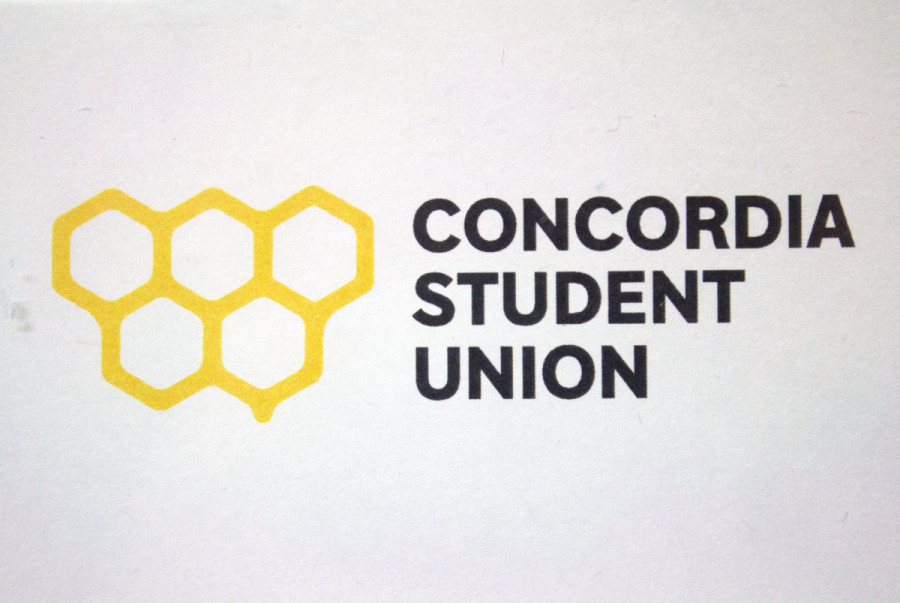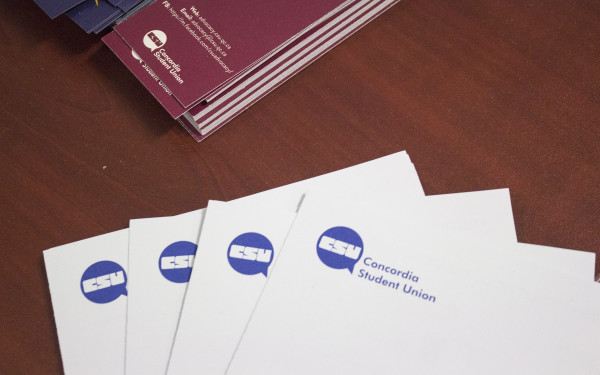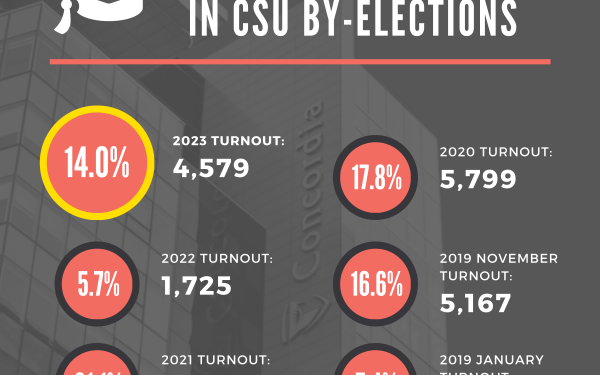Student contests $30 fee levy win in CSU by-election
Concordia Student Union chief election officer rejected the letter of contestation
On Nov. 21, the Studentcare Legal Care Program’s contract fee levy successfully passed at the Concordia Student Union (CSU) by-elections.
Based on the fee levy election results, 1,636 of the 3,677 students voted in favour of the contract. Following the win, students will pay $30 a year over four years for the program beginning in the Winter 2025 semester. Students will also have the option to opt-out.
On Nov. 25, four days after the election period ended, a student sent a contestation of the Studentcare referendum result to the CSU chief election officer (CEO), Ekamjot Kaur.
Ex-CSU councillor Dave Plant accused Studentcare and the CSU of breaking a number of election by-laws in the weeks leading up to the elections.
According to Plant, Studentcare sent out a promotional email to all undergraduate students on Nov. 5—prior to the start of the campaigning period—asking them to vote for its referendum fee levy. Plant also alleged that the company broke union by-laws again on Nov. 20, by sending promotional material during the voting period.
Additionally, Plant alleged that Studentcare’s fee levy was never passed through the union’s fee levy committee. This, according to him, violates article 1.1.3 of the Policy on Fee Levy Applications which states that “the Fee Levy Review Committee must approve an application prior to it being discussed at Council for approval for referendum.”
He also claims that it violates article 2.3.1 of the Policy on Elections and Referenda which states that “any referendum question concerned with a non-Student Union fee levy must be submitted to the Fee Levy Review Committee for review and approval according to the deadlines and procedures stipulated in the Policy on Fee Levy Applications.”
The contestation was rejected by Kaur.
In her response to the contestation, Kaur refuted almost all of Plant’s claims. She claims that Studentcare is a service under the CSU and therefore does not need to pass the referendum question by the fee levy committee.
Kaur also wrote that Studentcare’s violation of early and late campaigning will not be considered a rule violation, as the campaign period was originally supposed to begin on Nov. 5 before being pushed back by one week. Regarding the email sent on Nov. 20, Kaur also claims that promotional material sent out by the insurance broker is not considered “campaigning.”
Plant’s allegation regarding the violation of article 1.1.3 was not addressed in the rejection of the contestation.
Further concerns shared by the ex-councillor also include the fact that Studentcare’s fee levy referendum question was not revealed to the public until the start of the voting period. This, he claims, is in violation of article 5.1.2.1 of the Policy on Elections and Referenda which states that the CEO needs to issue a public notice on the questions at referendum, on the first day
of the Nomination Phase
Kaur explained that the question was only sent to her sometime before Nov. 18, making it impossible for her to upload it to the CSU website prior to the start of the nomination period on Oct. 11.
In an email sent to The Link, Kaur explained she had three days to respond to the contestation with her decision—which may then be appealed to the Judicial Board. Currently, the CSU does not have an active Judicial Board.
Both Plant and CSU general coordinator Kareem Rahaman have not answered The Link’s request for comment.







